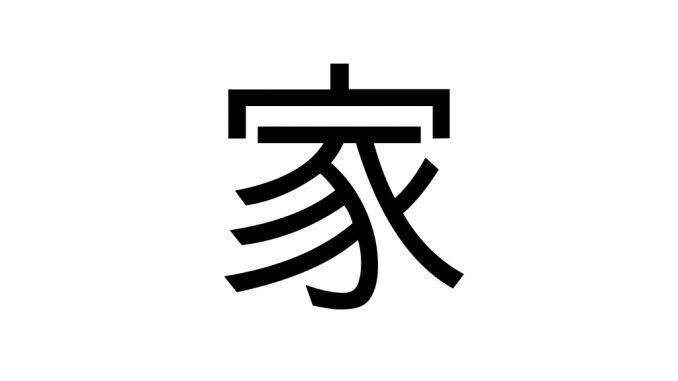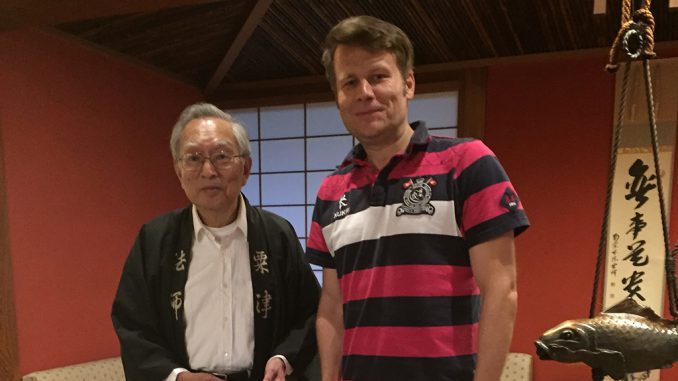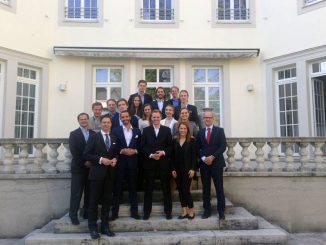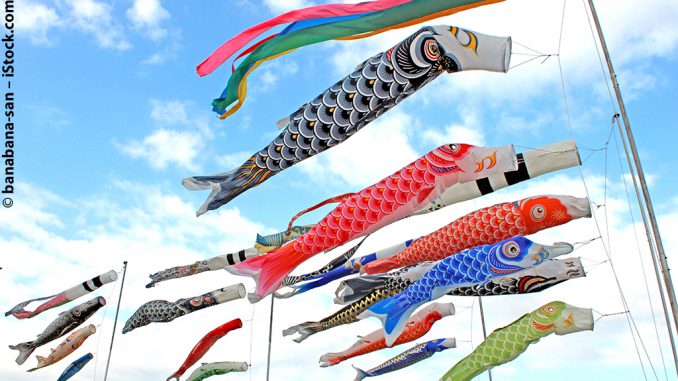
How do some family companies go on for centuries while others die early? What is the secret of a long corporate life? Is there an influence played by culture? And what can the unique Japanese “ie”concept of teach us about longevity? We offer some insight.
The average lifetime of an American family business is 24 years according to Lansberg and corresponds with the tenure of the founder. We have all heard about the 3rd generation curse and are familiar with the statistics that only 3 % of all family-owned corporations make it into the fourth generation. There are many things that can disrupt the life of a corporation, but the most prominent could well be swift succession processes, in a way the Achilles heel of family businesses. Things that come to mind are father-son conflicts, silver spoon syndrome, Sticky Baton problems, and a growing family size, whilst growing profits become increasingly challenging.
One country that seems to defy the 3rd generation curse much better than others is the land of the rising sun. Japan has 7 out of the 10 oldest companies on the planet and also has the highest concentration of old family businesses by any measure such as GDP, population, and landmass. According to a 2008 study from the Bank of Korea, the world had 5,586 companies that were older than 200 years. In this sample Japan was number one with 3,146 firms or 56 percent; the second was Germany with 837 or 15 percent; the Netherlands came third with 222 and fourth was France with 196 companies.
But it is not only the extreme cases of very old companies that are surprising, the overall life expectancy of a Japanese family business is higher in general. According to professor Toshio Goto from the Japan University of Economics in Tokyo, the average lifetime of a Japanese family business in 2005 was 52 years, more than double that of its American counterparts.
The Secrets of Japanese Family Companies and the Role of the “Ie” Concept in It
Why is this so, and what are the secrets that we can learn from Japanese family companies?
In a nutshell: Alignment of interest seems to be the key. Japanese family companies always have a competent family member at the helm of the organization, as active owner or manager, and there are no feuds between cousins. Sounds convincing in theory, but how do you do that when your business is over 400 years old and already in the 15th generation?
There are a couple of unusual factors that are unique to Japan. The Japanese social value system is obviously very different from its Western comparisons, but also dissimilar to its continental Asian counterparts. It entails strong cultic features, very strong corporate identity that permeates every aspect of company life and most importantly – and for many people unknown – a substantially different system of family guidance and administration, that has continued to define the nature of Japanese society since the Edo period.
The so-called “ie” system, a patrilineal household, is at the core of the traditional Japanese family. It is a very complex kinship unit, a very complex multigenerational family system that is based on primogeniture. In this particular system, only one child inherits. All of the other children in any generation are expected to eventually leave the family and go establish themselves in some other family or some other social institution. The chosen successor, usually the eldest son, inherits the family, everything to do with the family, and the rest of the children have to find their own way in the world. In the “ie” system lineage is important and meticulously recorded. In theory, the “ie” should last forever and in principle never dies. It embodies all of its deceased and future members. Sounds weird? Let’s explain the historical and philosophical background briefly so that one can understand the social dynamics better.
Understanding the Japanese “ie” Concept
The “ie” concept, which is not existing in the Western world, is vital to the Japanese business community. It is firmly rooted in the historic and socio-cultural tradition of Japan. As in many Eastern civilizations, Japanese culture plays down the role of the individual and places significance on the importance of conformity and the success of the group. The roots of this groupism are to be found in the early rice culturing society, emphasizing Shintoist values, harmony, horizontal ties, and an egalitarian structure. During the military government of the Edo period (1603 – 1886) this groupism was galvanized and the “ie” institution, a vertically oriented hierarchical family model, became prevalent.
The main reasons for the Shogunate to adopt the “ie” system were:
- easier taxation of subjects
- battle the land fragmentation due to equal inheritance
- general control of the population via neo-Confucianist thought
Confucianism offered the hierarchical organization in which each person was to act according to his status to ensure a harmoniously functioning society.
The notion of “ie” can be translated literally as family or home. The Chinese character 家 signifies people under a gable. Apart from this literal translation, it contains several other nuances such as “stem family”. It refers to a united or corporate group of people who share a residence and economic and social life, and who regard themselves as a continuing unit of kin, a household or a clan and gives long-standing old British noble families, such as the “House of Windsor”, as an analogy.
The logic of the “ie” system can be described with the following points:
- The primary objective of the parties in the “ie” relationship is to survive and prosper. The “ie” is neither a contractual venture whose objective is to maximize profit nor is it a venture which can be liquidated after squeezing it dry.
- Ideally, the “ie” must last forever, and as the “ie” prospers so does the family. Therefore, if the “ie” does not exist, neither can the family.
- It is the parents’ responsibility according to the “ie” to continue to have it prosper for the welfare of the family. In a certain sense, it is feudalistic, whereby the parents give children unconditional orders, and the children receive unconditional support.
- The “ie” is an organization in which members will give their all for the benefit of the “ie” by sacrificing their own personal benefits.
- Each “ie” has its specific precepts, habits, and culture. Members are brought up under the same philosophy, or religion, to create a strong team.
As you can see from the above, the primary objective of an “ie” is to survive and preserve the clan. Therefore, it entails: (1) long-term planning, (2) priority to market share, rather than profit, (3) weak shareholder position, (4) resisting mergers and acquisitions, and (5) displaying, even more, strength in the face of adversity. Interestingly, all these features draw strong parallels to the concepts laid out in the “Living Company” by de Geus.
By now, the reader should be reasonably confused. What is an “ie”? Is it still a family or is it a corporation? According to Professor Shimizu, it functions as a corporate body that holds property (i.e. land, a reputation, an art, or cultural and social capital) in perpetuity. It is an independent everlasting personality placed over individuals that composed it. Interestingly, the “ie” is not made up of individuals, but of positions. Summing up the above features, one can say that the “ie” household carries some important elements seen today in joint-stock companies. The “ie” is primarily based on corporate/ organizational rather than biogenic relationships. The “ie” concept definitely represents a “business first” approach to the business <-> family continuum (de Vries & Carlock, 2010).
Since it is “business first”, there are some very interesting facts to look at. First of all, and most importantly, it is about alignment. Since the company/ organization should last forever a Japanese family business based on the “ie” principle will have very few disturbances from misalignment when it comes to possible frictions between the different circles family, ownership and business. The Chairman/ CEO and head of the “ie” is usually in full control and the family is programmed to support him in any possible way.
The “ie” in the 3 Circle Diagram
The family Chairman/ CEO governs the business, his family and owns all the shares. He and his wife are the only legal representatives of his family. All other members of his immediate family and the household/ company/ organization are secondary. At the end of his life, he will inherit the business to one person of his choice who will be the next Chairman/ CEO, the next head of the family and the owner of all shares. In this way, the lineage is kept clean and controlled. Up till today, there is usually no split of company assets among children, the winner takes it all.
Contrary to the general rule, this winner does not necessarily have to be the first-born son of the current Chairman/ CEO. The position is technically up for grabs and needs to be earned. The current head of the “ie” will select the most qualified person that will ensure the survival of the tribe – no questions asked. In case there are no children or the offspring of the owning family is not willing or capable to fill the position, the head of the “ie” can rope in an outsider via adoption. This centuries-old adult adoption practice in Japan was developed as a mechanism for families to extend their family name, estate and ancestry without an unwieldy reliance on bloodlines.
The Chairman/ CEO of the “ie” can substitute his own bloodline with a competent person that he likes. By choosing a “mini-me” he can ensure the survival of the business and bar incompetent heirs from ruining the family lineage. The effect is twofold. First of all, his own kids will be much more aligned to the overall business goals and very motivated to do a good job. Second, he signals to his company talent pool that they also have a theoretical chance to make it big. The two things together can function as a form of doping.
How often do Japanese companies use this construct to ensure survival? Interestingly, Japan is characterized by one of the highest adoption rates in the world, one second to the US; over 81,000 legal, domestic adoptions were brokered in Japan in 2011 alone. Out of this, 98 % is adult adoption to safeguard the existence of the “ie”.
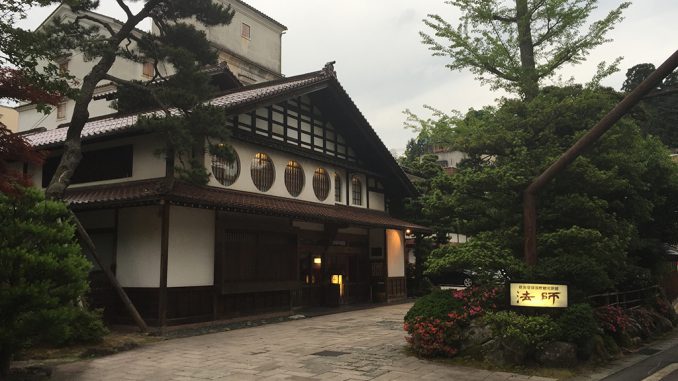
The framework of the “ie” in combination with the possibility of adoption ensures the perfect alignment of family, business, and ownership, to guarantee a low-conflict environment that will increase the chances of survival and boost the organization’s financial performance according to the interesting article titled “Adoptive Expectations, Rising Sons in Japanese Family Firms” by Mehrotra et al (2011).
Prominent examples of companies that used adoption to gain an edge and retain talent are: Kikkoman, Canon, Suzuki Motors, Toyota, Kajima, Takenaka and Mori Building.
What Can Business Families Learn from Japanese Family Firms?
Now: What can business families around the world learn from these insights?
First: In the discussion between individual interests of family members versus prosperity of the larger business system, long-lasting Japanese family businesses have opted towards a preference for the survival of the system and high-caliber talent, and thus survival and wealth of the family, instead of giving in to individualism and nepotism. More individualistic cultures may profit from discussing how the perspective of “ie” can contribute to their thoughts about succession planning, profiting together, and sharing a mutual core.
Second: The japanese “ie” systems put a preference on excellent talent, even from outside the family lineage. The concept of “adopting” talent can be a valuable thought for family businesses from other cultures. It might not necessarily mean legally adopting high caliber talent, but can also be reflected in partnership models between families and external talent, to assure long-term alignment of interest and incentives for top talent to support long-term survival of the family’s prosperity, especially in the absence of next generation leaders.
Third: In the current trend of family business advisory to “sell the writing down process of complex family constitutions” and establishing complex legal structures, one should not forget the importance of actually “being together”, spending time, communicating and mutually supporting each other. It is the unwritten spirit of “ie” and truly lived unity that is powerful. Written agreements are nice add-ons, but worthless if the core “ie” does not exist.
Fourth: “ie” systems are efficient, as they have a clear line of command. Family business systems from other cultures can adopt the fact that systems and hierarchies (e.g. between family councils, family offices, holding companies, investment committees etc.), once they are established by mutual consent and put to work, can “get to work” according to the delegations of authority, and are not held up by questioning decisions once taken.
In a nutshell: If family businesses from around the world strive for future prosperity and family survival in an increasingly volatile, uncertain, complex and ambiguous world, learning from the success models of Japan’s family businesses can be a valuable contribution to a discussion about belonging, achievement and survival, together.
Related Literature:
- Keeping It in the Family: Why are so many of the world’s oldest companies in Japan? http://www.slate.com/articles/business/continuously_operating/2014/10/world_s_oldest_companies_why_are_so_many_of_them_in_japan.html
- Adult adoption in Japan: Keeping it in the family http://www.economist.com/news/asia/21567419-family-firms-adopt-unusual-approach-remain-competitive-keeping-it-family
- Why are so many adults adopted in Japan? http://www.economist.com/blogs/economist-explains/2013/04/economist-explains-why-adults-adopted-japan
- ADOPTIVE EXPECTATIONS: RISING SONS IN JAPANESE FAMILY FIRMS https://www.ualberta.ca/-/media/7F4E2472F1CA4205A495B9C0292EE429
- Who wants to live forever – the quest for corporate immortality or why do Japanese family businesses outlive their western counterparts? http://librarycatalogue.insead.edu/cgi-bin/koha/opac-detail.pl?biblionumber=84005&query_desc=kw%2Cwrdl%3A%20EMCCC%20singapore
- Ie (Japanese family system) https://en.wikipedia.org/wiki/Ie_(Japanese_family_system)
- Japanese adult adoption https://en.wikipedia.org/wiki/Japanese_adult_adoption
The authors are responsible for the content and form of the article.

You are interested in economics and want to acquire in-depth business know-how?
Then the international business degrees at Munich Business School (MBS) are just right for you! At MBS you won’t cram dry theory from old textbooks, but learn in a outcome-oriented way and gain valuable practical experience. Convince yourself:
Bachelor’s in International Business
Master’s in International Business
Master’s in International Business I Finance
Master’s in Innovation and Entrepreneurship
Master’s in International Marketing and Brand Management
Master’s in Sports Business and Communication
MBA General Management
Doctor of Business Administration

